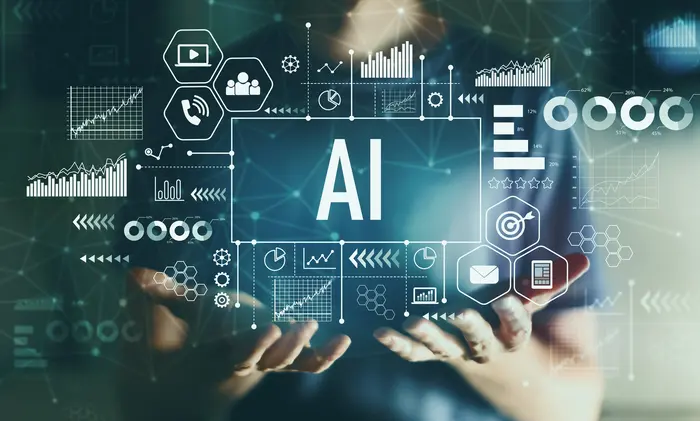
In the realm of software, the advent of artificial intelligence (AI) has been nothing short of a revolution. Particularly within the Software as a Service (SaaS) industry, AI has become a vanguard of change, driving unprecedented transformations and opening doors to new possibilities. That’s the reason why AI software development services are in high demand. This article aims to clarify the intricacies of how AI is reshaping the SaaS industry, bringing a new dimension of understanding to the table.
AI’s influence within the SaaS landscape is both pervasive and profound. From improving customer experiences to optimizing operational efficiency, AI’s potential to redefine the contours of SaaS is vast and varied. The symbiotic relationship between AI and SaaS is nurturing a future where software is not just a tool but a smart assistant that can learn, adapt, and evolve.
In the ensuing sections, we will critically examine the integration of AI in SaaS, discussing its implications, applications, and future prospects. This includes analysis of key areas such as predictive analytics, intelligent automation, personalized user experience, and much more. By the end of this article, we aim to provide a comprehensive understanding of the power and potential of AI in shaping the future of the SaaS industry.
What Is Artificial Intelligence? (For Beginners)
Artificial Intelligence, widely known as AI, is one of the branches of computer science that aims to create machines and software that can mimic human intelligence. Essentially, it’s about designing systems that can ‘think’ and learn in a similar way to how humans do, such as problem-solving, decision-making, learning, and understanding natural language.
There are two different types of AI: Narrow AI is designed to perform one specific task, such as voice recognition. And general AI, which can understand, learn, and apply knowledge in a broad range of tasks.
AI can be used in many different fields, such as healthcare, entertainment, finance, and transportation. It has the potential to greatly streamline our modern lives by making tasks easier and more efficient. However, it also raises ethical questions about the role of machines in our society and how they should be controlled.
AI works by using algorithms, or sets of rules, to process information and make decisions. These algorithms can be simple, like a recipe for baking a cake, or complex, like a strategy for playing chess. Some AI systems use machine learning, a type of AI technology allowing machines to learn from experience and improve their performance over time.
AI is a rapidly growing field with many exciting developments. However, it’s also a complex subject that requires a proper understanding of computer science and mathematics to fully grasp.
What Is SaaS?
SaaS, or Software as a Service, is known as a software distribution service model where a third-party vendor hosts applications and makes them available to users over the Internet.
Instead of installing and maintaining software solutions on individual computers or servers in your office, you access it via the Internet.
This model does not require organizations and companies to install and run applications on their computer systems or in their own data centers. In this way, SaaS removes the costs of hardware acquisition, provisioning, maintenance, and other expenses associated with software licensing, installation, and support.
Some common examples of SaaS applications include collaboration tools, customer relationship management (CRM) software, and virtual meeting platforms. Google’s G Suite, Microsoft’s Office 365, Salesforce’s CRM system, and Zoom are all examples of SaaS.
The benefits of using SaaS include easy accessibility from anywhere with a stable internet connection, scalability with user needs, automatic updates and patch management, and potential cost savings due to its subscription-based pricing model.
However, there can be potential downsides, such as data security concerns, dependence on the provider’s reliability, and potential issues with data ownership. Despite these concerns, SaaS has gained widespread acceptance due to its convenience and flexibility.
Evolution of AI in SaaS
From its early days as a concept, AI has come a long way. With technological advancements and machine learning capabilities, it has become an integral part of the SaaS sector. Initially, AI was used primarily for automating routine tasks and improving efficiency. However, with time, its potential has been unlocked, and AI is now capable of performing complex activities, such as data analysis, natural language processing, and more.

Impact on SaaS
The impact of AI on the SaaS industry has been nothing short of transformative. It has enabled businesses to streamline processes, automate repetitive tasks, and enhance decision-making capabilities. With AI-powered analytics, companies can gain valuable insights into their customers’ behavior, preferences, and needs. This has led to improved customer targeting and personalization, resulting in higher customer satisfaction and retention rates.
AI-Powered Personalization
One of the most significant ways in which AI has changed the SaaS industry is through personalized experiences. With AI-powered algorithms and machine learning capabilities, companies can now customize their offerings based on individual user data. This has led to more personalized user experiences, leading to higher engagement and conversion rates.
Improved Efficiency and Productivity
AI has also had a significant impact on the efficiency and productivity of SaaS businesses. By automating routine tasks, employees can now focus on more critical and creative work, so they can deliver better output. AI-powered tools such as chatbots have also reduced the workload of customer service teams, allowing them to handle more complex queries and provide faster responses.
Future Possibilities
As AI continues to evolve, the potential for its application in the SaaS industry is limitless. Natural language processing and machine learning will advance. Thus, AI-powered virtual assistants can now assist with various tasks, from scheduling meetings to drafting emails. In the future, AI is expected to play an even more significant role in decision-making, predictive analytics, and other crucial aspects of SaaS businesses.
Conclusion
The integration of AI in the SaaS industry has brought about significant changes and opened doors to new possibilities. With its ability to automate tasks, personalize experiences, and improve efficiency, AI has become a critical driver of growth for SaaS companies.
As technology continues to evolve over time, AI is expected to play an even more significant role in shaping the future of SaaS. It is essential for businesses in this industry to keep up with the latest developments and embrace AI as a powerful tool for success.